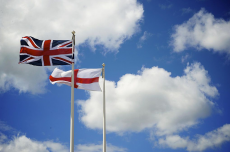
However the support that Gladstone had gained with the popularity policy of imperialism from the public dipped two years later in 1884 with the death of the famous British hero General Gordon. He was an icon of British imperialism and muscular Christianity who gained his glory in the Crimean and ‘Arrow’ wars. However in the siege of the Khartoum he was trapped by Sudanese rebels and killed. The British public reacted strongly against Gladstone for their loss and blamed him for not relieving the siege despite evidence that Gordon had previously refused to evacuate from the Khartoum earlier. The death of this martyr therefore brought down the popularity of Gladstone’s imperialism because he had lost a man who modelled the benefits of imperialism so effectively to the British people. On the other hand their reaction could also be seen as one of patriotism because they were mourning for a man that believed in British expansionism which suggests that they were still supportive of imperialism, just not Gladstone’s more informal imperialism. This was illustrated when Gladstone was defeated in 1885 and Queen Victoria chose Lord Salisbury as the new Prime Minister.
Lord Salisbury was a Conservative, which was made by Disraeli into the ‘party of empire’, however Salisbury was no ‘new imperialist ‘, in contrast to people such as Chamberlain, Milner and Rhodes. On the other hand he was aware of Britain’s need to defend and retain her empire as illustrated by his involvement in the ‘Scramble for Africa’. His attitude to imperialism was shown to be popular in the British public’s eyes due to his re-election in 1886. This victory was probably aided by the rising new imperialism ideology, the political flag bearer of which was Chamberlain who was so popular for his patriotism that by 1895, in Salisbury’s third administration, he even survived the outbreak of his involvement in the Jameson raid. New imperialism was clearly becoming of growing interest to the British public in 1895 as Salisbury refused to allow the political leader of this ideology, Chamberlain to resign in order to retain public support. Joseph Chamberlain and the new imperialism ideology both gained an increase in popularity due to the India and colonial exhibition which he organised in 1886. It attracted over 50 million visitors and revealed to politicians the rising sense of patriotism in the British public. This also proves my previous point about the public change in opinion towards the type of imperial policy that should be put in place. Informal imperialism had lost its popularity, however a more patriotic and expansionist imperialism was on the rise.
The ‘uncrowned king’ of new imperialism was Chamberlain, who was so popular for his patriotism that in 1895, Salisbury’s third administration, he even survived the outbreak of his involvement in the Jameson raid. New imperialism was clearly becoming of growing interest to the British public in 1895 as Salisbury refused to allow the political leader of this ideology, Chamberlain to resign in order to retain public support.
Image: By THOR (Summer Sky in Southsea England) [CC BY 2.0 (http://creativecommons.org/licenses/by/2.0)], via Wikimedia Commons

0 Comment:
Be the first one to comment on this article.